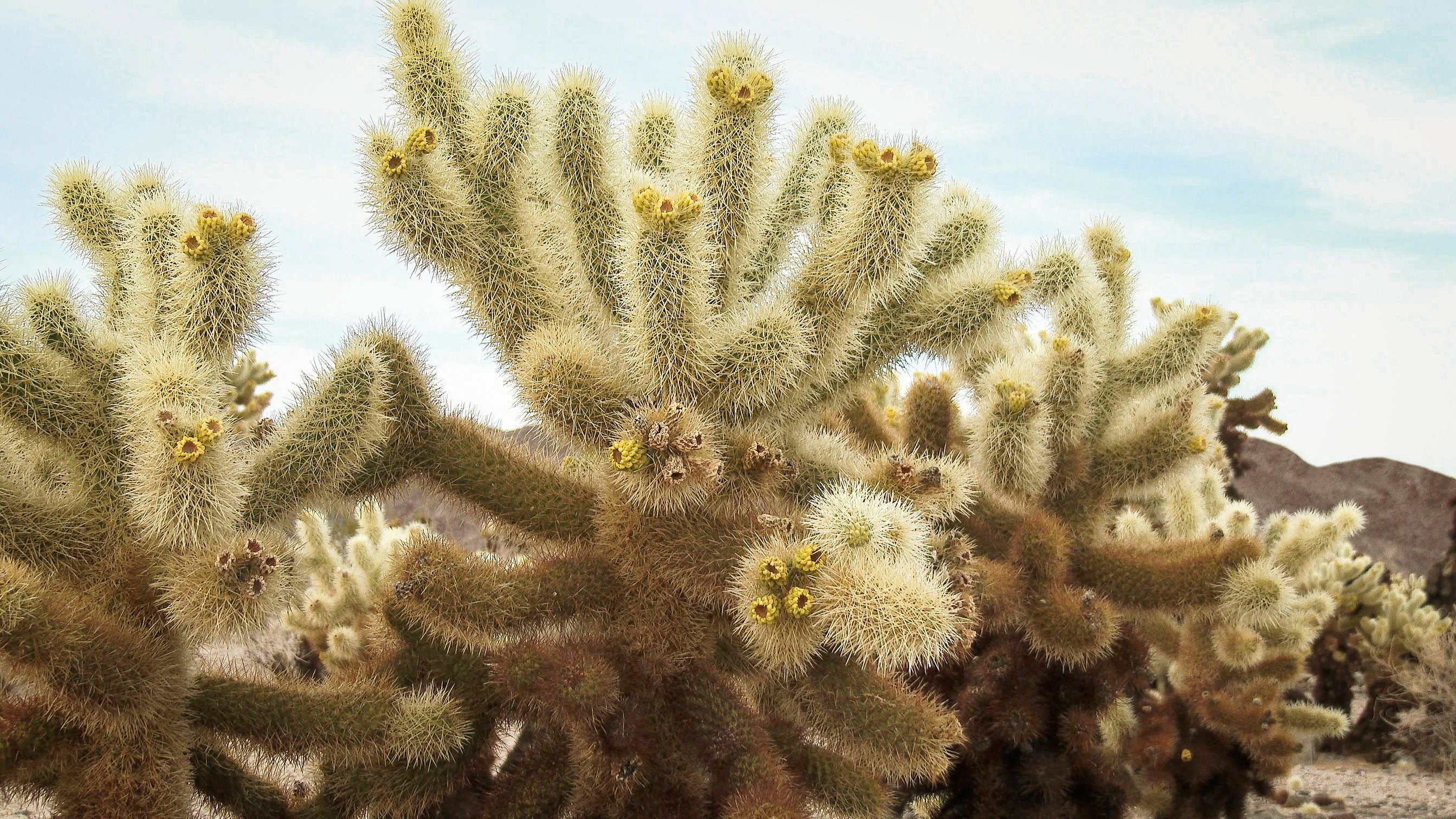Cholla Cactus Care: Tips For Growing Cholla Cactus


Cholla is a jointed cactus in the Opuntia family, which includes prickly pears. The plant has wicked spines with a nasty habit of getting stuck in skin. The painful barbs are covered in a paper-like sheath which may be very colorful and attractive. In spite of the barbs, the plant makes an excellent addition to a southwest style garden. Some tips on how to grow a Cholla cactus plant will get you started. Just watch those spines and be cautious around the plant.
Cholla Cactus Information
Chollas are native to the American southwest in deserts and arid zones. They are composed of cylindrical stems arranged in segments and topped with inch (2.5 cm.) long spines. There are more than 20 species of the plant. An interesting bit of Cholla cactus information is its diversity of shape. The plant may be a creeper, shrub, or tree. Sizes vary from just a few feet tall (1 m.) to 15 feet (5 m.) in height. Flowers are green or orange, depending upon species, and bloom April through June. Growing Cholla cactus requires well-drained soil with plenty of grit in a sunny location. Wild plants are found in steep rocky slopes in the foothills all the way up to dry mountain forest edges.
How to Grow a Cholla Cactus Plant
The method of propagation of Chollas is through vegetative stem or pad planting. The plants also grow from seed, albeit very slowly. Soil pH should be average, and the area should percolate well to prevent bogginess and excess moisture, which will cause rot in the root system of the cactus. Loosen the soil to a depth of at least 8 inches (20 cm.) at planting time and add extra sand or grit to increase the porosity. Make the planting hole twice as deep and twice as wide as the roots of the plant and pack well around the roots. Cholla cactus will need supplemental water until established but will need very little irrigation once mature, except in cases of extreme drought. You can also try growing Cholla cactus in a container with good drainage holes. These plants are not winter hardy and that is the best option for northern gardeners where they can move the plant indoors once cold temperatures threaten. Containers allow these gardeners to protect cold sensitive plants and produce a summertime Cholla cactus garden on the patio or other sunny location.
Cholla Cactus Care
Providing the right soil and sun exposure are key to good Cholla cactus care. The plant's moderate moisture needs mean it is perfect for a drought or xeriscape garden. The many forms of the cactus provide a unique opportunity to create a Cholla cactus garden and showcase the different shapes, sizes, and habits of this cactus. The main issues for this plant are excess moisture and mealybugs. Mealybugs are dealt with by using insecticidal soap or simply blasting the majority of the bugs off with a garden hose. Plants that sit in standing water can get stem and root rot. To combat this, it is best to lift the plant and allow the roots to dry and callus. Prune off any damaged plant material with sterilized pruners or loppers. Replant the cactus in a mixture of topsoil or loam heavily amended by at least 30 percent grit, such as play sand. Due to the spines, it is best to protect your hands during planting with heavy gloves or secure the stem with layers of newspaper, which you can remove once the cactus is in the planting hole. Cholla survive temperatures down to 5 degrees F. (-15 C.) for short periods but prefer an average minimum temperature of 50 degrees F. (10 C.) and bloom and thrive best in temperatures of 70 degrees F. (21 C.) or more.
Sign up for the Gardening Know How newsletter today and receive a free copy of our e-book "How to Grow Delicious Tomatoes".

Bonnie Grant is a professional landscaper with a Certification in Urban Gardening. She has been gardening and writing for 15 years. A former professional chef, she has a passion for edible landscaping.